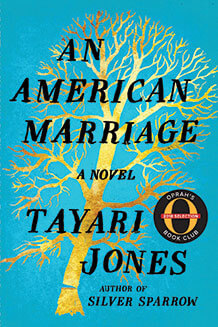As the days grow shorter and the weather gets colder, what’s better than curling up inside with a good book? So, we’ve compiled our Winter Reading List — our biannual recommendations of what to read (you can see the summer version of our list here, and last winter’s here). There are 48 picks this winter (not including books we authored, though we highly recommend those too!).
This list covers the gamut, with an economic exploration of our planet’s hopes and the role of tech — the only repeat on this year’s list — to a grand yet grounded exploration of trees to personal essays, memoirs, and stories of family, tragedy, and relationships… the full range of human experience.
…from Seema Amble, investing team:
Midnight in Chernobyl: The Untold Story of the World’s Greatest Nuclear Disaster by Adam Higginbotham. “Even if you’re familiar with the story, this book sheds light around the decision-making, the individuals, and the culture behind the incident. It’s in many ways a reminder of the importance of the people behind technology. The book reads like fiction and you won’t want to put it down.”
…from Zoran Basich, editorial team:
The Chain by Adrian McKinty. “This propulsive thriller kept me up a few nights with a chilling premise that taps into every parent’s primal fear. A stylish page-turner that’s scary good.”
…from Katie Baynes, communications team:
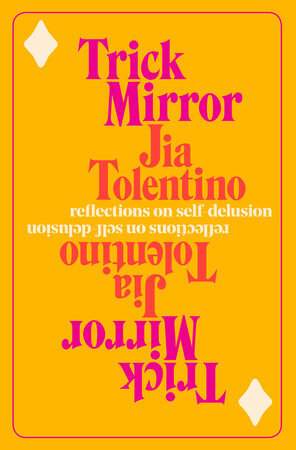 Trick Mirror by Jia Tolentino. “She’s one of my favorite writers right now — she writes incredible essays for the New Yorker on some of the commonly accepted but under-analyzed concepts of our modern culture: everything from ‘sassy mom merch’ and the millennial houseplant obsession to the anthropomorphism of dogs. Earlier this year she published this book, a collection of more personal essays where she explores her own cultural history and analyzes everything from religion and workout routines to marriage and literary heroines. Tolentino has a Didion-esque quality to her writing, interweaving historical research with modern concepts… while maintaining a fresh, astute, and still-playful take on the world we live in today.”
Trick Mirror by Jia Tolentino. “She’s one of my favorite writers right now — she writes incredible essays for the New Yorker on some of the commonly accepted but under-analyzed concepts of our modern culture: everything from ‘sassy mom merch’ and the millennial houseplant obsession to the anthropomorphism of dogs. Earlier this year she published this book, a collection of more personal essays where she explores her own cultural history and analyzes everything from religion and workout routines to marriage and literary heroines. Tolentino has a Didion-esque quality to her writing, interweaving historical research with modern concepts… while maintaining a fresh, astute, and still-playful take on the world we live in today.”
…from Martin Casado, general partner:
Tinkers by Paul Harding. “It’s the first novel written by Harding, who previously was a drummer in a rock band. Despite being beautifully written — almost perfect, really — it was initially rejected for being too slow and meditative. But it gained popularity and won a Pulitzer, largely through word-of-mouth. Bottoms-up adoption for the win!”
…from Sonal Chokshi, editorial team:
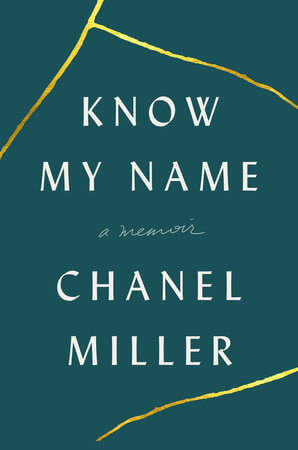 Know My Name: A Memoir by Chanel Miller. “This was one of the most exquisitely written, fully felt, multi-dimensional books I have ever read — with meanings and implications well beyond the events: The author is the Emily Doe of the Stanford campus sexual assault case, whose victim impact letter went viral online in 2016 (the outrage over the sentencing later led to the recall of the judge presiding over the case, and to a new California law imposing a mandatory minimum sentence to remove such judicial discretion in such cases). But the book goes deeper, and well beyond, the case itself — covering systemic issues across society (the scenes with several drive-by catcalls one semester in Rhode Island were the most compelling) and across institutions (like Stanford and community). One thing that’s incredibly clear throughout though is that Miller is no one’s victim, and her story is truly an extraordinary memoir of a life still in the making.”
Know My Name: A Memoir by Chanel Miller. “This was one of the most exquisitely written, fully felt, multi-dimensional books I have ever read — with meanings and implications well beyond the events: The author is the Emily Doe of the Stanford campus sexual assault case, whose victim impact letter went viral online in 2016 (the outrage over the sentencing later led to the recall of the judge presiding over the case, and to a new California law imposing a mandatory minimum sentence to remove such judicial discretion in such cases). But the book goes deeper, and well beyond, the case itself — covering systemic issues across society (the scenes with several drive-by catcalls one semester in Rhode Island were the most compelling) and across institutions (like Stanford and community). One thing that’s incredibly clear throughout though is that Miller is no one’s victim, and her story is truly an extraordinary memoir of a life still in the making.”
Veronica Mars: The Thousand Dollar Tan Line an original mystery by Rob Thomas and Jennifer Graham. “I wanted more more more after the Veronica Mars movie, so was pleasantly surprised to discover and devour these books, which I re-read this fall after the much-awaited (and excellent!) Veronica Mars season 4 series dropped on Hulu. It ties together some big open questions from the earlier Veronica Mars seasons (like what happened to her mom) and scratches super-fan itches for what happened to minor characters as well (such as what did Norris grow up to be). The book also fills in key gaps between the movie and latest season, such as why Veronica learned to shoot a gun, and how Keith was adjusting to her leaving behind bigger opportunities outside Neptune.”
Veronica Mars 2: Mr. Kiss and Tell an original mystery by Rob Thomas and Jennifer Graham. “This book continues filling in the gaps between the movie and the newest season, everything big and small and in between including: where the new sheriff in town came from; how Veronica and Logan got their dog Pony; what went down with Weevil; and the case Leo and Veronica had worked on together in between (she even reminds Logan of “that Neptune Grand case” when he asks about Leo in season 4;). But most of all, the book portends the return of a more classic mystery-story style that Thomas apparently wants for upcoming Veronica Mars seasons, as revealed by his shocking ending in season 4. (The style of the books actually reminded me a little of the Earl Stanley Gardner mysteries I used to devour as a kid… I think I read every single Perry Mason novel but one!)”
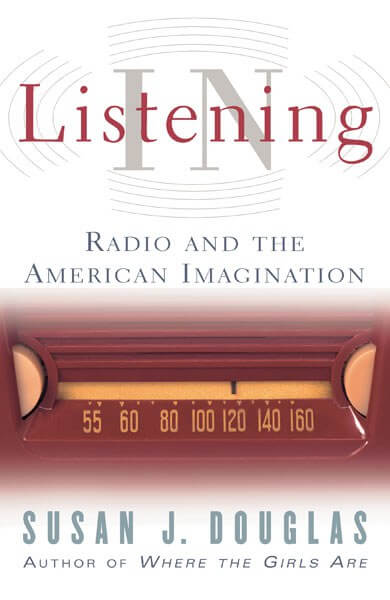 The Ink Master’s Silence; The Cheater’s Game; The Prisoner’s Key (books 6, 7, 8 of Glass and Steele) by C.J. Archer. “So I guess I’m on a mystery kick (am also working my way through the Cormoran Strike novels) since I read all of these this year. The entire series is a continuously developing story of magic and romance — with a different mystery within each book too — taking place at the turn of the century in England. Instead of the Industrial Revolution, though, there’s ‘magic’, so it’s fascinating to see parallels between the perceptions and issues of magic and tech (e.g., guilds as regulatory capture, fear over the power of magic when not understanding it, and so on).”
The Ink Master’s Silence; The Cheater’s Game; The Prisoner’s Key (books 6, 7, 8 of Glass and Steele) by C.J. Archer. “So I guess I’m on a mystery kick (am also working my way through the Cormoran Strike novels) since I read all of these this year. The entire series is a continuously developing story of magic and romance — with a different mystery within each book too — taking place at the turn of the century in England. Instead of the Industrial Revolution, though, there’s ‘magic’, so it’s fascinating to see parallels between the perceptions and issues of magic and tech (e.g., guilds as regulatory capture, fear over the power of magic when not understanding it, and so on).”
Homecoming; Dicey’s Song by Cynthia Voigt. “I loved the book Dicey’s Song so much as a teen, but thanks to Kindle (!) I only discovered the entire ‘Tillerman Cycle’ of books this year, which I’m still working my way through. This is a story of the bonds (and breaks) in family, love, and resilience beginning in childhood; yet there’s something so revealing to read it in adulthood.”
Listening In: Radio and the American Imagination by Susan Douglas. “I picked this up because wanted to understand the history of American radio especially as we enter new inflection points for audio (I have been thinking a lot about podcasts finally displacing radio, and what that will take). Though the book is a tad bit too detailed for my taste, it definitely delivers on the cultural history and evolution of American listening. One of the interesting threads is when the author tries to assert that radio makes people smarter and “TV dumbs them down” — something I disagree with wholeheartedly as believe we’re in a golden age of TV and visual storytelling! — but then she reflects on trying “to privilege the auditory over the visual” — something which I too wonder given my love of audio > video. In the end, the author lands on believing that “listening remains the richer form of cognitive processing” and while I, too, can’t prove that, I agree!”
On Writing: A Memoir of the Craft by Stephen King. “The best book on the craft, style, and tools of writing. I bought it years ago (symbolically at a bookstore located in New England, one of the oldest indie ones in the U.S.!), but only read it this year. It is chock full of backstories, perfect descriptions, and precise lines (my copy has underlines everywhere), but I’ll leave you all with just this one: ‘Good writing is often about letting go of fear and affectation.'”
…from D’Arcy Coolican, investment team:
More From Less: The Surprising Story of How We Learn to Prosper Using Fewer Resources – And What Happens Next by Andrew McAfee. “Amazing book that manages to be both optimistic and realistic about the future. He effectively shows how the combination of tech progress, capitalism, an informed public, and responsive government has consistently proven our worst fears for our planet to be unfounded. But he also articulates how related factors — like declines in social capital and unfairness — can threaten the underlying mechanisms that make that happen.” [related: podcast with author]
The Revolt of the Public: And the Crisis of the Authority in the New Millennium by Martin Gurri. “This book helped me understand what is happening in politics, culture, and the media today. Gurri shows how technology (i.e., social media) has empowered the ‘public’ (or at least the part of the public that engages on social media) and how that group is using its new power to knock down, but not necessarily replace, the prevailing institutions of society.”
…from Theresa Dilley, tech talent & people practices team:
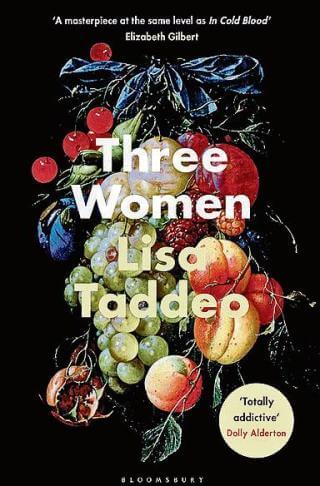 Ask Again, Yes by Mary Ann Keane. “A story of two families intertwined by proximity, love, and tragedy.”
Ask Again, Yes by Mary Ann Keane. “A story of two families intertwined by proximity, love, and tragedy.”
Three Women by Lisa Taddeo. “The stories of three women in different geographies, at different stages of their lives, and of different socioeconomic backgrounds — and their need to feel love and be loved. The book details the mind-blowing depths of misery and suffering due to loneliness.”
The Days of Abandonment by Elena Ferrante. “You could feel her devastation through the pages after being abandoned by her husband for a much younger woman.”
The Secrets We Kept by Lara Prescott. “Historical fiction about women in the CIA and the many roles they played. It’s a story of unsung heroes.”
An American Marriage by Tayari Jones. “A heartbreaking story of an African- American couple that is ripped apart when the husband is accused of a crime. This shows the real-life consequences when black men are unjustly accused of crimes they didn’t commit.”
…from Jack Donahoe, legal team:
Masters of Doom: How Two Guys Created an Empire and Transformed Pop Culture by David Kushner: “Deeply enjoyable origin story of how the ‘Two Johns’ (Carmack and Romero) met, launched an iconic company, and revolutionized gaming with new technologies and creative game concepts that are still deeply ingrained in some of the most popular and important games today. This is a really fun story regardless, but highest recommendation if you’ve ever spent a weekend (or more) playing a first-person shooter game with friends — which was Goldeneye 007 for me.”
…from Tom Hammer, tech talent & people practices team:
Guns, Germs, and Steel by Jared Diamond. “Diamond’s unique analysis of the drivers of variation across major civilizations throughout history provides an engaging tour through our development as a global society. Some of the more unexpected influences (like that of horizontal vs. vertical orientation of Earth’s continents on their native populations) fueled an intense curiosity and left me thinking about many aspects of our world through a lens straight out of Sid Meier’s Civilization series.”
…from Charles Hubbard, executive talent team:
American Kingpin: The Epic Hunt for the Criminal Mastermind Behind the Silk Road by Nick Bilton. “Bitcoin, the Silk Road, and one hell of a detective story.”
Red Notice: A True Story of High Finance, Murder, and One Man’s Fight for Justice by Bill Browder. “The real-life story of privatization of the Russian economy, and what happens when honest investors go up against the Russian oligarchs and Putin. It’s the basis for the Magnitsky Act, and this entire topic comes back around in the famous Russian Trump Tower meeting.”
Deep Survival: Who Lives, Who Dies, and Why by Laurence Gonzales. “Ever wonder why some people survive crazy accidents like plane crashes and mountaineering mishaps, and others don’t? This is a look into the mindset of the survivor. Gonzales didn’t make an analogy to business, but the relevance is clearly there.”
…from Jeff Jordan, general partner:
SprawlBall: A Visual Tour of the New Era of the NBA by Kirk Goldsberry. “Uses detailed analytics and informative illustrations to explain the seismic changes that have occurred in the NBA over the past decade.”
The Curse of Bigness: Antitrust in the New Gilded Age by Tim Wu. “A well-researched history of the evolution of antitrust in the U.S., which has led to a level of business consolidation not seen since the early ‘trust’ days.”
The Body: A Guide for Occupants by Bill Bryson. “I am a big Bryson fan. In this book, he tours the human body in typical Bryson fashion, taking hard concepts and making them accessible and interesting.”
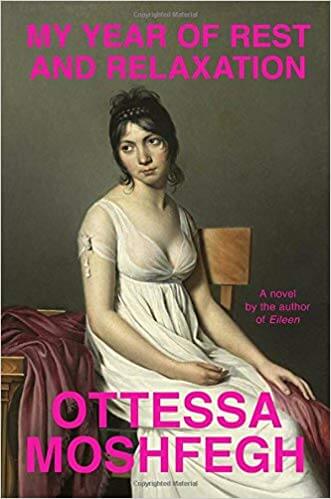 …from Gray Kinsella, market development team:
…from Gray Kinsella, market development team:
Walden by Henry David Thoreau. “Walden is a great read for reflecting on what’s important in life, so appropriate for many this time of year.”
…from Alexis Lakes, finance team:
The Gift of Fear and Other Survival Signals that Protect Us From Violence by Gavin de Becker. “A primer on learning to predict violence in order to prevent it. It’s a must-read, especially given violence with firearms.”
…from Kristine Lipscomb, market development team:
Originals: How Non-Conformists Move the World by Adam Grant. “Grant’s view on innovation is not the typical kind you see in a business-oriented book. He goes beyond technology to show that artists, activists, and even government workers can change the fabric of how we live and work.” [related: podcast with the author]
…from Lauren Murrow, editorial team:
My Year of Rest and Relaxation by Ottessa Moshfegh. “The unsmiling, 20-something staffer at my local bookstore described this book as ‘a real mindf — in a good way’ with uncharacteristic enthusiasm. And it delivers. This is the story of a 26-year-old New Yorker who decides to embark on a pill-fueled ‘hibernation project’: She wants to sleep, uninterrupted, for a year. It’s a seemingly banal plot that turns into a twisted piece of performance art. An aside: I read this while deep in the throes of sleep deprivation with a new baby, so it may also have doubled as a strange kind of voyeurism. (‘Oh, sleep. Nothing else could ever bring me such pleasure, such freedom, the power to feel and move and think and imagine, safe from the miniseries of my waking consciousness,’ opines the narrator, who calls herself a ‘somniac’). If you’re the sort of person who has ever complained that the characters are ‘just so unlikeable‘ when assessing a TV show, book, or movie, this novel is not for you. But if you’re looking for something deeply weird, darkly funny, and compulsively readable, consider this your anti-beach read.”
…from Jessica Patton, cultural leadership fund team:
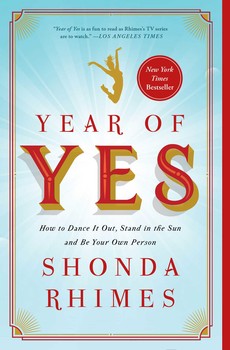 Year of Yes: How to Dance It Out, Stand In the Sun and Be Your Own Person by Shonda Rhimes. “Written by the creator and producer of popular TV shows including Grey’s Anatomy and Scandal, Rhimes provides a needed reminder to say yes — especially to the unexpected, and at times intimidating, opportunities life offers up. Through her witty, touching, and sometimes vulnerable account of her life, Rhimes pulled me in and reminded me of how a simple ‘yes’ can be so transformative.” [related: podcast/video with the author]
Year of Yes: How to Dance It Out, Stand In the Sun and Be Your Own Person by Shonda Rhimes. “Written by the creator and producer of popular TV shows including Grey’s Anatomy and Scandal, Rhimes provides a needed reminder to say yes — especially to the unexpected, and at times intimidating, opportunities life offers up. Through her witty, touching, and sometimes vulnerable account of her life, Rhimes pulled me in and reminded me of how a simple ‘yes’ can be so transformative.” [related: podcast/video with the author]
The Water Dancer by Ta-Nehisi Coates. “Coates is a masterful storyteller. By weaving the facts of slavery into fiction along with a bit of magic, Water Dancer is an entrancing account of Hiram, a Virginia slave turned freed man, and his journey to finding himself and working to reverse the injustices of others still enslaved. It is a vivid account and thought piece on freedom, family, and transcendence.”
…from Das Rush, editorial team:
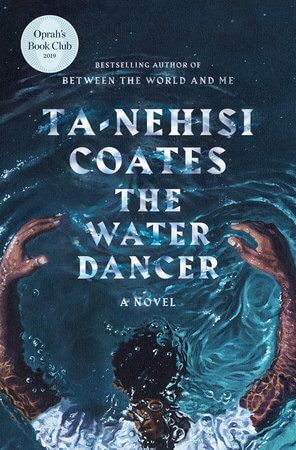 Oulipo Compendium by Harry Mathews and Alastair Brotchie. “Oulipo is short for the French phrase ‘Ouvroir de Litterature potentielle’ and was a recent literary movement among French and Italian intellectuals (among them Italo Calvino) who applied mathematical algorithms to literature. This compendium rounds up the best techniques with some impressive results. For instance, one writer created literally millions of sonnets by writing 10 sonnets in which a given line from one was interchangeable with the same line in any other sonnet. Exponential creativity!”
Oulipo Compendium by Harry Mathews and Alastair Brotchie. “Oulipo is short for the French phrase ‘Ouvroir de Litterature potentielle’ and was a recent literary movement among French and Italian intellectuals (among them Italo Calvino) who applied mathematical algorithms to literature. This compendium rounds up the best techniques with some impressive results. For instance, one writer created literally millions of sonnets by writing 10 sonnets in which a given line from one was interchangeable with the same line in any other sonnet. Exponential creativity!”
Space Cadet by Kid Koala. “John Cage made music of silence, and DJ Kid Koala composes wordless literature with drawings and music. You ‘read’ this graphic novel about the loneliness of living in a digital world while listening to an accompanying musical score (bonus if you listen to it on vinyl).”
House of Leaves by Mark Danielewski. “Need to escape the family over the holidays? This isn’t a book, it’s a rabbit hole into a labyrinth of ever-changing proportions. It starts simply enough with our first narrator, Johnny Truant, discovering a set of papers in a dead man’s apartment. But soon his reality — and our own — slips as we enter a Russian nesting doll of stories that include letters from Johnny’s mother in an insane asylum, a family whose house defies the laws of physics, and more footnotes than a senior thesis. Plenty of readers have gotten lost in the pages and online forums, debating what it all means. (Required listening: the album Haunted by Poe, Danielewski’s sister, that was inspired by the book.)”
…from Rex Salisbury, investing team:
More from Less: The Surprising Story of How We Learn to Prosper Using Fewer Resources – And What Happens Next by Andrew McAfee. “Uses lots of data to show in surprising ways how capitalism tends towards dematerialization that benefits society and the planet. But the book is also realistic; markets fail when they don’t internalize externalities like pollution.” [related: podcast with author]
…from Steven Sinofsky, board partner:
The Third Apple: Personal Computers and the Cultural Revolution by Jean-Louis Gassée. “Gassée is a legend in the industry, having been at Apple in the early days building out Apple Europe and later overseeing the Macintosh line. In this time-capsule book from 1985, he collects essays on everything from silicon to software to artificial intelligence and represents the contemporary thoughts on the topics. Gassée is also the primary author of Monday Note on Medium, which comments on current technology and business developments.”
User Friendly: How the Hidden Rules of Design Are Changing the Way We Live, Work, and Play by Cliff Kuang and Robert Fabricant. “If you are a fan of Don Norman’s books or those from Henry Petroski, then you will love this deeply researched book. User Friendly is essentially a history of the role of design: What was the world like before design? What gave rise to design? Have humans influenced design or has design influenced humans?”
A History of Modern Computing by Paul Ceruzzi. “This classic from MIT Press is worth re-reading if you are trying to root your thinking in the history of our field going back to the start. Ceruzzi, a curator at the National Air and Space Museum, takes us on a deep, technology-first history of computing from the first electronic calculators of the 1940s through the rise of ‘networking’ in the mid-1980s. Most of us reading this only know or experienced the history after that. This book fills in the gaps. Isn’t it cool that our field is still so new? So much left to do.”
…from Nina Suthers, communications team:
 The Life-Changing Magic of Tidying Up by Marie Kondo. “A good way to organize your closets and shelves, but also a good framework to organize everything around you.”
The Life-Changing Magic of Tidying Up by Marie Kondo. “A good way to organize your closets and shelves, but also a good framework to organize everything around you.”
Becoming by Michelle Obama. “A brilliant look behind the scenes. Definitely do the audio book version — it’s much more powerful to hear it all from Michelle Obama herself!”
How the Internet Happened: From Netscape to the iPhone by Brian McCullough. “If you ever wanted to go back and relive the early days of the internet, you have found your book. It feels like a Netflex mini-series — you will binge-read it in one sitting.” [related: podcast with the author]
…from Hanne Tidnam, editorial team:
The Overstory by Richard Powers. “Powers makes trees as vibrant and alive as the humans in this novel. The title is a reference to the small part of the story we’re seeing when we see trees (i.e., just the above-ground part), and that in fact the root system — and all that’s going on both above and below what we see as the tree — is the much bigger story. His novel tries to do the same thing with the human characters of the novel, connecting a series of lives and families in an intricate root system that sometimes overlaps at critical junctures, all adding up to a leaf canopy-like collage. Although its ambition sometimes oversteps its execution, this book made me think about the deep connection humans have to trees, and how small (and narcissistic) humanity really is in this giant, miraculous planet. Cool bonus: so many mind-blowing tree facts!”
…from Aparna Verma, editorial intern:
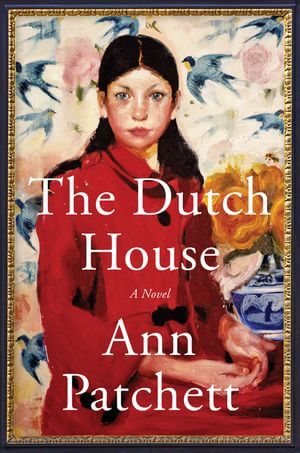 The Ministry of Utmost Happiness by Arundhati Roy Knopf. “Roy not only delves into the nitty-gritties of human emotion, but also the complex, frustrating tangle of the sweeping history of the Indian subcontinent. As always, her storytelling is magnificent and her characters are larger than life. I haven’t finished the book yet… I don’t want it to end.”
The Ministry of Utmost Happiness by Arundhati Roy Knopf. “Roy not only delves into the nitty-gritties of human emotion, but also the complex, frustrating tangle of the sweeping history of the Indian subcontinent. As always, her storytelling is magnificent and her characters are larger than life. I haven’t finished the book yet… I don’t want it to end.”
…from Sarah Wang, late stage venture investing team:
The Man Who Solved the Market: How Jim Simons Launched the Quant Revolution by Gregory Zuckerman. “The world’s greatest investor (no other investor comes close) is also a founder: He founded Renaissance Technologies in a strip mall when he was a middle-aged mathematician. Simons went through 10 years of derision, co-founders losing faith, and bumpy returns until he finally found a ‘model that made money while he slept, a pure system without humans interfering’. It’s a fascinating read, the first time his story has been shared in depth, and is a reminder for investors and founders alike to keep persevering!”
…from Margit Wennmachers, operating partner, marketing team:
The Dutch House by Ann Patchett: “It is the most moving novel. If you have a sibling, this book will stick with you; you’ll never get it out of your head. But it will make you a more thoughtful person about every relationship in your life.”
- Welcome to the AI + a16z podcast
- Navigating the Impact of Generative AI on Enterprise Security: Insights from Industry Experts
- America Needs More Techno-Optimism
- Regulating Crypto in the Name of National Competitiveness with Emilie Choi
- Securing America’s Future: How Technology Companies and Washington Are Building A Safer World

